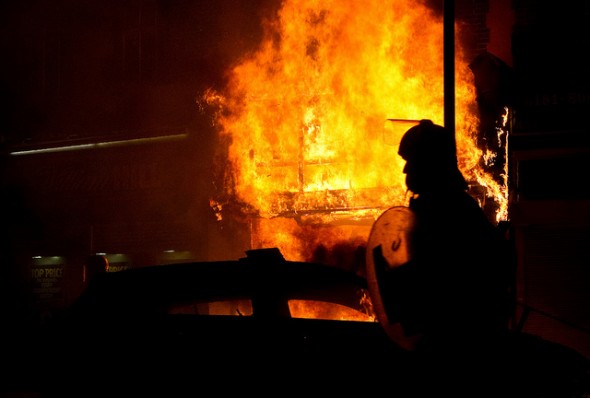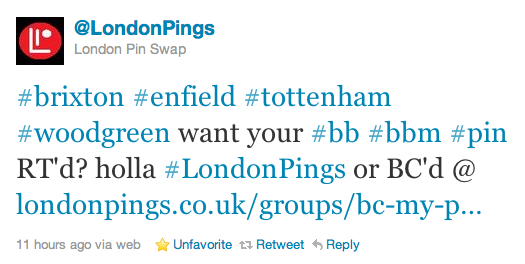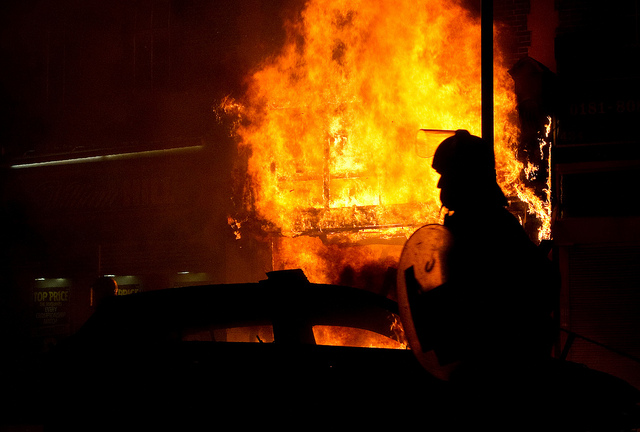
Over the last weekend, various parts of London erupted in riots, chaos, and looting – catalysed by the police shooting of Mark Duggan in an alleged shoot out. There are still questions about the shooting and its relevance to the riots, which seems to have lost all motivation other than disaffected youth from underprivileged areas wanting to show their aggression towards authority. But it is how these riots were organised that is most interesting from a technological standpoint and in comparison with the Arab uprisings earlier this year.
As reported by TechCrunch, it appears that the London riots organised themselves through Blackberry’s BBM messenger system rather than through Twitter and Facebook which were so central to organising the Arab uprisings. Mike Butcher proposed that the rioters used BBM because it was free, and available on Blackberrys which are relatively inexpensive when compared to iPhones and other smartphones, with Blackberry being a strong brand in London’s Afro-Carribea and urban communities with the company recently sponsoring a secret Jay-Z and Tinie Tempah gig in the capital.
The fact that BBM is a private or shadow social network was also proposed by Jonathan Akwue and mentioned by Butcher – but the importance of this factor cannot be underestimated. In the Arab uprisings, the online organisation was done via Twitter and Facebook in public in order to gain popular support from those both local and in foreign countries – so people could see their motives and to prevent the authorities claiming that their actions were just those of criminals and it worked. Yes the authorities could see where the protests were going to happen in advance, but so could the international news media outlets such as Al Jazeera – who were broadcasting live and on the ground from many of the protests. The Arab uprisings were protests for basic human rights, a cause that much of the world would support.
In contrast, the London riots and lootings do not seem to have a political motivation, and so could not claim widespread public support for their actions. Public organisation, therefore, would have been to the detriment of the rioters’ aims. The Deputy Assistant Commissioner of the Met police admitted this morning in an interview on BBC Radio 4 that the police did not have good intelligence on Saturday’s riots – pointing to the likelihood that any organisation was done via a shadow network, and Blackberry’s BBM service is notoriously difficult to wiretap. Some countries such as UAE and Saudi Arabia have banned some functions of the devices as the communication is too difficult to eavesdrop on by authorities and they fear them being used in the ways seen in London.
However, with some Twitter users offering to send out BBM pins to people who want to be part of the messages being sent around the riots – how the lines have blurred between open and shadow. A shadow network where people publicise the gates suddenly lose that shadow descriptor, but it is unclear whether those having their pins publicised were ringleaders or just those reporting from the frontline.

[Photo by Beacon Radio]


Pingback: The Good And Evil Of Social Media In The London Riots | TechFruit
Pingback: If We Turn Off Social Media, Lets Turn Off Television, Radio, and The Printing Press Too | TechFruit
Pingback: The Descrier Is Live | TechFruit